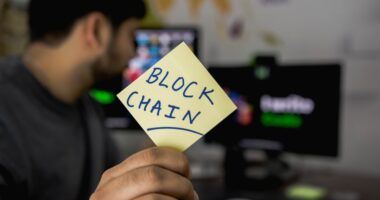The emergence of non-fungible tokens (NFTs) has revolutionized the digital art landscape, offering artists a new avenue for monetization and engagement with their audience. However, the process of creating an NFT is not without its financial implications. At the outset, artists must consider the various costs associated with the creation of their digital assets.
These expenses can range from the initial conceptualization and design of the artwork to the technical requirements for minting the NFT on a blockchain. Each step in this process can incur costs that, if not carefully managed, may lead to financial strain or unexpected losses. Moreover, the choice of blockchain platform plays a significant role in determining the overall cost of NFT creation.
Different blockchains have varying transaction fees, known as gas fees, which can fluctuate based on network congestion and demand. For instance, Ethereum, one of the most popular platforms for NFTs, often experiences high gas fees during peak times, which can significantly increase the cost of minting an NFT. Artists must also consider additional expenses such as wallet setup fees, security measures to protect their digital assets, and potential costs associated with hiring professionals for technical assistance.
Understanding these multifaceted costs is crucial for artists looking to navigate the NFT space effectively.
Key Takeaways
- NFT creation costs can include expenses for digital art creation, minting, listing, and marketing.
- Setting a realistic budget for NFT artwork involves considering all associated costs and potential returns.
- Factoring in expenses for digital art creation includes software, equipment, and artist fees.
- Considering costs for NFT minting and listing involves platform fees and gas fees for blockchain transactions.
- Budgeting for marketing and promotion of your NFT is essential for reaching potential buyers and maximizing returns.
- Evaluating the potential returns on your NFT investment requires understanding market trends and demand for digital art.
- Seeking professional financial advice for NFT creation can help artists and investors make informed decisions and manage costs effectively.
Setting a Realistic Budget for NFT Artwork
Creating a Realistic Budget for NFT Artwork
Establishing a realistic budget is crucial for artists who want to enter the NFT market without incurring excessive financial burdens. A well-thought-out budget should encompass all aspects of the creation process, from initial concept development to final minting and marketing efforts.
Assessing Skills and Resources
Artists should begin by assessing their own skills and resources. If they possess the technical know-how to create and mint their NFTs independently, they may save on costs associated with hiring external help. However, if they lack experience in digital art creation or blockchain technology, it may be prudent to allocate funds for professional assistance.
Factoring in Unforeseen Expenses
In addition to direct creation costs, artists should also factor in potential unforeseen expenses that may arise during the process. This could include additional software licenses for design tools, unexpected increases in gas fees during minting, or even costs related to legal advice if they wish to protect their intellectual property.
Benefits of a Comprehensive Budget
By setting a comprehensive budget that accounts for both expected and unexpected expenses, artists can better position themselves for success in the competitive NFT marketplace. This proactive approach not only helps in managing finances but also allows artists to focus on their creative endeavors without the constant worry of overspending.
Factoring in Expenses for Digital Art Creation

Creating digital art involves a variety of expenses that artists must consider when budgeting for their NFT projects. The first major expense is often software; many artists rely on professional-grade tools such as Adobe Creative Suite or Corel Painter, which come with subscription fees or one-time purchase costs. While there are free alternatives available, they may lack certain features that professional artists require for high-quality output.
Additionally, artists may need to invest in hardware upgrades, such as a powerful computer or a graphics tablet, to ensure that their creative process is efficient and effective. Beyond software and hardware, artists should also consider the time investment required to create their digital artwork. Time is an often-overlooked expense; the longer an artist spends on a piece, the more it costs them in terms of lost opportunities or potential income from other projects.
This is particularly relevant in the fast-paced world of NFTs, where trends can shift rapidly and timing can be crucial for sales success. Therefore, it is essential for artists to evaluate not only the monetary costs but also the time commitment involved in creating their digital art when setting their budgets.
Considering Costs for NFT Minting and Listing
Once the digital artwork is complete, the next step involves minting the NFT and listing it on a marketplace. Minting refers to the process of converting digital art into a non-fungible token on a blockchain, which typically incurs transaction fees known as gas fees. These fees can vary significantly depending on the blockchain used and current network conditions.
For instance, during periods of high demand on Ethereum’s network, gas fees can skyrocket, making it essential for artists to time their minting strategically to minimize costs. In addition to gas fees, artists should also consider any listing fees charged by NFT marketplaces. Some platforms require a fee to list an NFT for sale, while others may take a percentage of the sale price once the artwork is sold.
Understanding these costs upfront can help artists make informed decisions about where to mint and sell their NFTs. Furthermore, it’s wise to research various marketplaces to find one that aligns with their target audience and offers favorable terms. By carefully evaluating these expenses related to minting and listing, artists can ensure that they are not caught off guard by unexpected costs that could impact their overall profitability.
Budgeting for Marketing and Promotion of Your NFT
In an increasingly crowded NFT marketplace, effective marketing and promotion are vital components of a successful sales strategy. Artists must allocate a portion of their budget specifically for marketing efforts to ensure that their NFTs reach potential buyers. This could involve creating promotional materials such as social media graphics or videos that showcase the artwork and its unique features.
Additionally, artists may want to invest in paid advertising on platforms like Instagram or Twitter to increase visibility among targeted audiences who are interested in digital art and NFTs. Moreover, building a community around one’s artwork is crucial for long-term success in the NFT space. Engaging with followers on social media platforms or participating in online forums dedicated to NFTs can help artists cultivate relationships with potential buyers and fellow creators alike.
This organic approach to marketing often requires time and effort but can yield significant returns in terms of brand loyalty and word-of-mouth promotion. By budgeting adequately for both paid advertising and community engagement efforts, artists can enhance their chances of successfully selling their NFTs while establishing a lasting presence in the digital art world.
Evaluating the Potential Returns on Your NFT Investment

Understanding the NFT Market and Potential Returns
When entering the NFT market, evaluating potential returns is crucial. Artists must consider not only the immediate financial gains from selling their NFTs but also the long-term value that their work may hold over time. The volatility of the cryptocurrency market can significantly impact NFT prices; thus, it is essential for creators to stay informed about market trends and shifts in consumer interest.
Making Informed Decisions in the NFT Market
By understanding these dynamics, artists can make more informed decisions about pricing their work and timing their sales. Additionally, artists should recognize that building a reputation within the NFT community can lead to increased demand for future projects. Successful sales can create momentum that attracts collectors and investors who are eager to support emerging talent.
Long-Term Opportunities in the NFT Market
Therefore, while initial returns may vary widely based on market conditions and individual artwork appeal, establishing oneself as a credible artist in this space can lead to greater opportunities down the line. By taking a holistic view of potential returns—considering both immediate sales and long-term brand growth—artists can better navigate their financial expectations within the NFT landscape.
Seeking Professional Financial Advice for NFT Creation
Given the complexities involved in creating and selling NFTs, seeking professional financial advice can be an invaluable step for artists looking to enter this market successfully. Financial advisors with experience in digital assets can provide insights into budgeting strategies tailored specifically for NFT projects. They can help artists understand tax implications related to cryptocurrency transactions and guide them on how best to manage profits from sales while minimizing liabilities.
Furthermore, professional advice can assist artists in navigating investment opportunities beyond just selling individual NFTs. As the market evolves, there may be opportunities for collaboration or investment in other digital assets that could complement an artist’s portfolio. By consulting with financial experts who understand both traditional finance and emerging digital markets, artists can make informed decisions that align with their long-term goals while ensuring they remain financially secure throughout their creative journey in the world of NFTs.
FAQs
What is NFT creation?
NFT creation refers to the process of producing a unique digital asset, known as a non-fungible token (NFT), which is then stored on a blockchain. This can include digital art, music, videos, and other digital files.
How much does it cost to create an NFT?
The cost of creating an NFT can vary widely depending on factors such as the complexity of the artwork or digital content, the platform used for minting the NFT, and any associated fees. It’s important to budget for expenses such as artist fees, minting fees, and potential marketing costs.
What are the typical expenses associated with NFT creation?
Typical expenses associated with NFT creation can include artist fees, minting fees (the cost to upload the NFT to a blockchain), gas fees (transaction fees on the blockchain), and potential marketing or promotion costs.
How can I budget for NFT creation?
To budget for NFT creation, it’s important to research and understand the potential costs involved, including artist fees, minting fees, and any additional expenses. It’s also important to consider the potential for fluctuating gas fees on the blockchain and to factor in marketing or promotion costs if necessary.
Are there any cost-saving tips for NFT creation?
Some cost-saving tips for NFT creation include researching different platforms for minting NFTs to find the most cost-effective option, negotiating artist fees, and carefully planning and budgeting for potential marketing or promotion expenses. Additionally, staying informed about blockchain gas fees and timing transactions strategically can help minimize costs.





